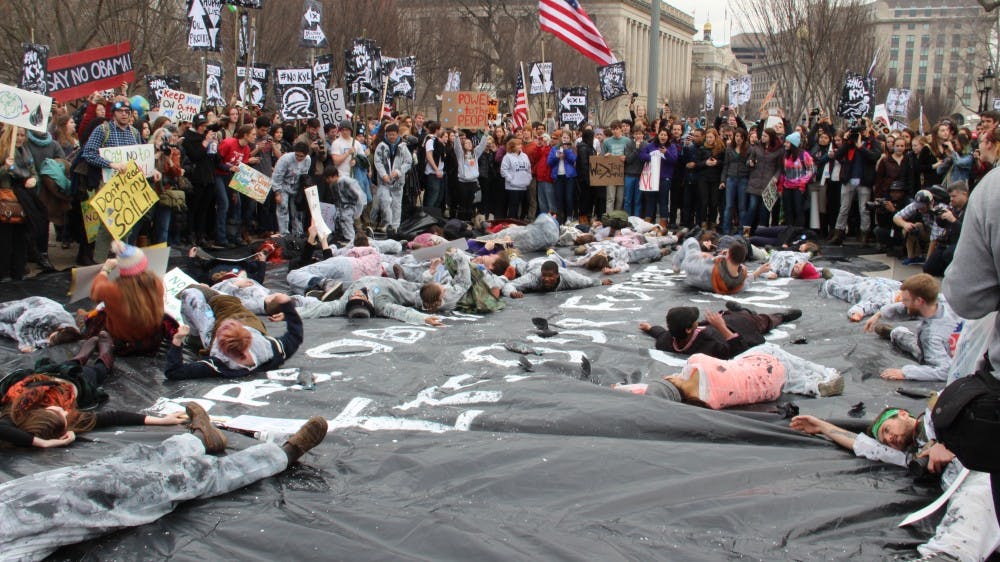University students joined more than 1,000 young protesters to march from Georgetown University to the White House March 2 as part of XL Dissent, a protest against the proposed Keystone XL pipeline extension. Students sought to pressure President Barack Obama to reject the extension later this year.
University alumna Claire Wyatt, who graduated in May, was arrested at the protest for refusing to get off the ground in a mock oil spill outside the White House. Wyatt said the protest gathered people from 40 states and 42 universities.
“Four hundred of us, both on the fence and laying on the ground, just waited through the three [police] warnings,” she said. “After the third warning, the police started to arrest the peaceful protesters there.”
Wyatt said she had never been arrested before, but that the protest “was a risk worth taking.”
“This protest is one piece in the growing KXL debate,” said Second-year Engineering student Lia Cattaneo, co-chair of the University’s Climate Action Society, in an email. “Thousands of students turned out in solidarity against the KXL pipeline and this should send a message to the President, as he is making decisions that will significantly affect our generation.”
Hundreds of protesters set up mock oil spills outside Secretary of State John Kerry’s house and the White House while others zip-tied themselves to the White House fence. By the end of the demonstrations, almost 400 were arrested, including four University undergraduates and Wyatt.
First-year College student Carolyn Pugh participated in the walks and witnessed the arrests of University students.
“Building the Keystone would contribute to climate change, destroy animal habitats, run though Native American land, and could cause more oil spills and water contamination,” Pugh said in an email. “The protest allowed students to show that they will not stand for it.”
Center for Politics spokesperson Geoffrey Skelley said the protest would not seriously affect Obama’s decision.
“These protests have sparked at least a little more interest in the debate over the Keystone Pipeline,” Skelley said in an email. “But at the end of the day, I don’t think the protests are going to influence the fate of the Keystone Pipeline.”
Protesters have also threatened to move their votes away from the Democratic party if Obama approves the pipeline. Despite this, Skelley said he doubts liberal voters would start supporting Republicans who have supported the pipeline as well.
“The real cost for Democrats from approving the pipeline might be less money from environmental groups and perhaps less active support in campaigns,” Skelley said. “President Obama is going to weigh the economic, environmental, and political pros and cons, and then come to a decision.”







